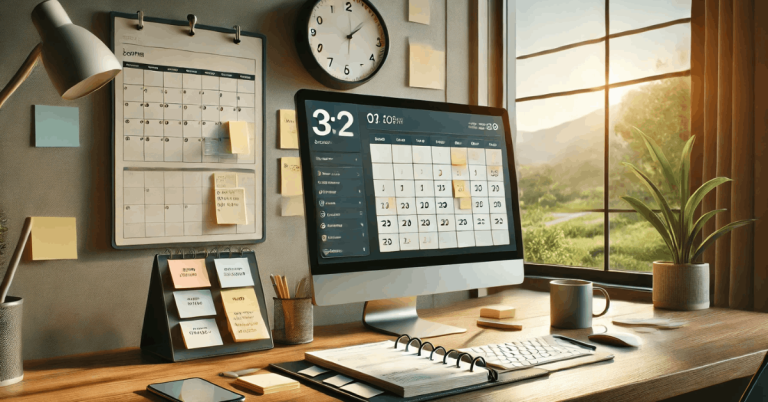Some individuals naturally excel in certain areas, while others find them challenging. For example, visualizing and designing spaces may come easily to a skilled designer, but troubleshooting technical issues might not.
The same principle applies to decluttering and organizing. For some, it’s an intuitive process that feels straightforward.
For others, it can be overwhelming and difficult to approach. Recognizing this difference is key to finding practical solutions and creating an organized, clutter-free environment.
Declutter Your Life: The Impact of Letting Go
Clutter does more than crowd your home; it impacts your mental health. Research highlights that cluttered spaces elevate cortisol levels, the hormone linked to stress. This can lead to increased anxiety and difficulty focusing.
Clearing clutter provides a sense of control, positively influencing mood and mental health. Organized environments often lead to improved sleep, better concentration, and enhanced self-esteem.
A decluttered space also encourages creativity and efficiency. Removing unnecessary items reduces distractions, helping you focus on tasks and engage in creative activities more effectively.
Decluttering vs. Organizing
Decluttering means removing unnecessary items to create space and simplicity. Organizing is arranging items for convenience and accessibility. Decluttering must happen first; attempting to organize clutter only leads to keeping unnecessary items and wasting time.
Eliminating excess simplifies life and reduces stress. A clutter-free space naturally becomes easier to organize. Decluttering may feel overwhelming, but the benefits are significant. It saves time and money and enhances your living environment.
Streamlining your space improves your daily life and brings clarity. Decluttering is a step toward a more peaceful and productive home. Focus on reducing the excess to create lasting change.
Decluttering Your Life: Benefits
Owning fewer possessions comes with a range of advantages. These benefits make the effort to declutter worthwhile and provide motivation to take action:
- Easier Cleaning: Having fewer items means less time spent cleaning around unnecessary belongings. Cleaning becomes simpler and less frustrating when clutter no longer gets in the way.
- Simplified Organization: Finding what you need becomes straightforward. You avoid the frustration of misplaced items and regain freedom to move through your home without obstacles.
- Reduced Stress: A cluttered space often creates mental overwhelm. A home free of unnecessary items provides visual calm and emotional relief, making it a space you enjoy being in.
- Lower Expenses: Decluttering leads to better purchasing decisions. Avoiding the accumulation of unnecessary possessions saves money and reduces financial strain.
- Improved Financial Stability: Reducing the habit of accumulating clutter supports better financial habits. Over time, this allows for building savings and creating a buffer for unexpected situations.
- Focus on Passions: A decluttered life opens time and energy for what truly matters—whether that’s hobbies, relationships, or personal growth. It creates space for fulfillment and genuine happiness.
So, how do you really declutter? Read the steps below.
Step #1: Clear the Space Completely
Start by creating a clean slate. Removing everything allows you to assess what you truly need and eliminates distractions.
Example: Your Closet
- Take Out Every Item: Empty the entire space to see everything you own clearly.
- Decide What Stays: Keep items that you like, need, or actively use. Ensure they fit and have a purpose in your life.
- Sort into Categories: Group similar items together, such as shirts, pants, and dresses, to create an organized system.
- Put Back Essentials: Return the key pieces neatly into the space, arranged by category, for easy access.
Step #2: Decide What to Discard
Eliminating unnecessary items reduces clutter and creates a more organized space.
- Identify Items to Discard: Focus on things that no longer serve a purpose, are damaged, or have been unused for a long time.
- Remove Immediately: Place these items directly into a discard box or bag to prevent second-guessing.
- Dispose Properly: Take the discarded bag or box out to the trash or donation center without delay to avoid clutter piling up again.
Step #3: Decide What to Sell or Repurpose
Turn unwanted items into something valuable or useful instead of letting them take up space.
- Sort into a Sell or Repurpose Box: Place items you can sell or repurpose into a designated box.
- Set a Deadline: Commit to selling or repurposing these items within 30 days. If not, donate them to ensure they leave your space.
Step #4: Decide What to Donate
Help others while creating more space by donating items that are still in good condition but no longer serve a purpose in your life.
- Sort into a Donation Bag or Box: Identify items such as clothing, toys, household goods, or furniture that can benefit someone else. Make sure they are clean and functional.
- Designate a Drop-Off Plan: Place the donation bag or box in your car immediately to avoid procrastination. Choose a specific day that week to drop off the items at a donation center or thrift store.
- Consider Local Charities or Pickup Services: Many organizations offer convenient pickup services. Research local charities, shelters, or community groups that accept donations and schedule a collection if needed.
- Label and Organize Donations: Clearly label the boxes to ensure a smooth handoff to donation centers, and sort them by category if possible to make the process easier for recipients.
Step #5: Move to the Next Area
Once the first area is done, shift to the next prioritized space that will benefit most from being decluttered and organized.
- Apply the Same 5 Steps: Repeat the process systematically for each area. This keeps the approach consistent and effective.
- Work in Manageable Time Blocks: Dedicate 15 to 30 minutes daily or more if possible. Small, consistent efforts lead to significant progress.
- Stay Disciplined and Focused: Completing these tasks requires commitment, but the clear results will keep you motivated to continue.
Conclusion
Decluttering creates a sense of order and peace that enhances both your home and your mind. By simplifying your space, you free yourself from distractions and stress, allowing for better focus and improved well-being.
Taking small, consistent steps ensures progress without feeling overwhelming. Embrace the process as a pathway to a more organized and fulfilling life.


